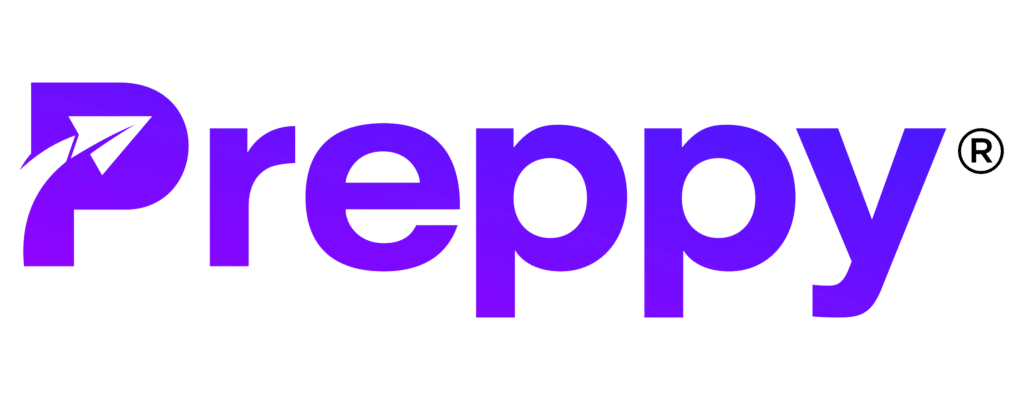If you want to become a medical assistant, then you should get certified.
The National Certified Medical Assistant (NCMA) certification is also a significant credential for those looking to advance their career.
In this article, we’ll discuss NCMA certification, its eligibility criteria, the NCMA exam, its structure, exam topics, exam fees, passing scores, and more.
Moreover, we’ll also share the step-by-step guide to help you obtain the NCMA certification.
Plus, we’ll delve deeper into the drawbacks of the NCMA certification to help you decide whether to pursue this credential or try something like the CCMA.
Lastly, we’ll talk about one standout online medical assistant program that could make you certification-ready faster, without driving to college and without any student loan debt.
So, let’s get started.

What is a National Certified Medical Assistant?
A National Certified Medical Assistant (NCMA) is a certification offered through the National Center for Competency Testing (NCCT).
Once certified, the NCMA credential is valid for five years. To maintain certification, medical assistants are required to complete continuing education and meet recertification requirements.
NCMA Eligibility Requirements
The NCMA certification from the NCCT offers multiple pathways for eligibility.
Here’s a breakdown of the eligibility requirements:
Eligibility through Education
This is the fastest and most direct route to becoming NCMA-certified, ideal for individuals who have completed a formal medical assistant training program.
Candidates must graduate from an NCCT-approved or accredited medical assistant program, which typically includes comprehensive coursework in both clinical and administrative aspects of medical assisting.
These programs are often found at community colleges, vocational schools, and some universities.
These educational programs usually last between 9 months to 2 years, depending on whether it’s a diploma, certificate, or associate degree.
Read -> The Fastest Way to Become a Medical Assistant
Eligibility through Experience
For individuals who did not complete a formal training program, experience in the field can still qualify them for the NCMA certification.
Candidates who have been working as medical assistants for at least 2 years full-time (or equivalent part-time) within the past five years are eligible.
This experience must be verifiable and demonstrate proficiency in both administrative and clinical duties.
Eligibility through Military Service
The NCMA certification is also open to veterans or active military personnel who have received medical assistant training during their service.
Those who have completed medical assisting programs as part of their military duties are eligible to apply for the NCMA certification.
The NCCT recognizes the specialized training and experience military personnel receive in healthcare settings.
Military candidates need to provide proof of their medical training and service, including a transcript or documentation that verifies the medical assistant training received during their service period.
NCMA Exam Structure and Details
The NCMA exam is designed to assess the knowledge and skills required to perform efficiently in a medical assistant role.
Administered by the National Center for Competency Testing (NCCT), this certification exam is critical for those looking to validate their expertise in the medical assisting field.
Exam Details
The NCMA exam is a comprehensive test with the following details:
The exam is computer-based, with a combination of multiple-choice questions (MCQs). Candidates have approximately 3 hours to complete the exam.
There are typically 150 scored questions, along with a few unscored pretest questions included in the test.
The NCMA exam is available throughout the year and can be scheduled at designated testing centers or online.
Exam Topics
The NCMA exam covers a wide range of topics that reflect both the clinical and administrative duties of a medical assistant.
The primary areas include:
- Clinical Procedures (including patient care, pharmacology, injections, EKG, and emergency management)
- Medical Terminology (understanding and using medical terms relevant to healthcare and patient care)
- Anatomy and Physiology (basic body systems, functions, and disease processes)
- Patient Preparation (preparing patients for examinations and assisting with medical procedures)
- Medical Office Management (scheduling, billing, and medical coding practices)
- Infection Control and Safety (maintaining sterile environments and understanding healthcare safety protocols)
- Law and Ethics (understanding the legal and ethical considerations in medical practice)
These topics are essential for the NCMA exam, ensuring that candidates are well-prepared to perform a wide variety of tasks in a medical setting.
Exam Fee
The cost of the NCMA exam can vary depending on the route through which a candidate is applying:
For students or recent graduates of an NCCT-authorized program: The exam fee is generally around $90.
For applicants through the work experience route or military service: The exam fee is approximately $135.
This fee includes the cost of the exam and initial certification if passed, but retake fees or additional charges may apply for other services.
Passing Score
The NCMA exam requires a minimum passing score of 70%. This is a standardized score based on the total number of questions answered correctly, meaning candidates need to have a firm grasp of the various topics covered in the exam to pass.
Successfully passing the NCMA exam grants certification, which is valid for a specific period (usually two years) and must be maintained through continuing education or recertification exams.
Lastly, the NCMA exam evaluates the critical skills required to work effectively as a medical assistant, offering a pathway to certification and career advancement.
Cons of an NCMA Certification
Certification boosts a medical assistant’s credibility, enhances job prospects, and increases earning potential by showcasing verified skills and competence to employers.
However, for the NCMA certification, there are some potential drawbacks aspiring medical assistants should be aware of.
Here’s a look at the cons of pursuing NCMA certification:
Cost of Certification
One of the primary cons of the NCMA certification is the cost associated with obtaining it. From enrolling in an accredited medical assistant program to paying for the certification exam and study materials, the financial burden can add up.
The certification exam itself has a fee of $90, and there may be additional costs for exam preparation, such as textbooks, courses, or practice tests. For those on a tight budget, this can be a significant hurdle.
Time Commitment for Preparation
While some medical assistant programs can be completed quickly, preparing for the NCMA certification exam requires additional time because completing the program itself takes longer.
So, candidates must devote substantial hours to studying exam topics, reviewing practice questions, and understanding certification standards.
This can be challenging, especially for those who are working or managing other life responsibilities alongside their training. For some, this extra time commitment can be a deterrent.
Limited Value in Some Employment Settings
While NCMA certification is recognized nationwide, not all employers require it. In most regions or healthcare facilities, employers prefer CCMA certification.
For example, smaller clinics or offices may prioritize CCMA over NCMA certification, which could reduce the return on investment for the certification.
In these cases, the time and money spent earning NCMA credentials might not result in the expected benefits.
Pressure to Pass Certification Exam
The NCMA certification exam can be stressful, particularly for those who may not be confident test-takers.
Failing the exam may require retaking it, which means additional exam fees and preparation time.
This can also cause delays in starting your career if your employment is contingent on earning certification before beginning a job.
How To Obtain an NCMA Certification?
To obtain NCMA certification, candidates must go through a rigorous process that involves meeting eligibility criteria, completing educational requirements, gaining hands-on experience, and successfully passing the NCMA exam.
Here is a step-by-step guide to help you navigate through the process of obtaining NCMA certification:
Step 1 -> Meet the Eligibility Requirements
Before you begin the certification process, ensure you meet the eligibility criteria set by the National Center for Competency Testing (NCCT).
There are three main eligibility routes:
- Completing a medical assistant program from an NCCT-approved school is the fastest way to qualify.
- If you already have experience as a medical assistant, you may qualify through a work-experience route, depending on your hours and tenure.
- Veterans who have worked in healthcare settings during their service can use this experience to qualify.
Make sure to review the specific requirements in each category before proceeding.
Step 2 -> Enroll in an NCCT-Accredited Medical Assistant Program

Once you confirm your eligibility, enroll in an NCCT-accredited medical assistant program.
Accredited programs ensure that the education you receive meets industry standards and adequately prepares you for the certification exam.
Look for programs that offer a solid balance of theoretical knowledge and practical training.
Step 3 -> Complete the Coursework
Your medical assistant coursework will cover essential topics such as medical terminology, anatomy, patient care, clinical procedures, and administrative tasks.
The coursework can vary from 4 weeks to 12-month programs depending on the format (accelerated, full-time, or part-time). Make sure to stay focused and complete all required courses within the timeframe given by your program.
Step 4 -> Gain Experience Through Externships
To solidify your training, gaining hands-on experience through externships is critical. Externships provide you with the opportunity to apply classroom knowledge in a real healthcare setting, such as a clinic or hospital.
This experience is valuable not only for the certification process but also for gaining employment after you become certified.
Step 5 -> Apply for NCMA Certification
Once you have completed your coursework and externship, you can apply for the NCMA certification.
Submit your application directly to the NCCT, ensuring that you meet all documentation requirements (e.g., proof of education, externship hours, or work experience).
Be mindful of deadlines and application fees, as these vary depending on your certification pathway. After submission, your application will be reviewed, and you will receive confirmation of eligibility to sit for the exam.
Step 6 -> Prepare for the Exam
Preparation for the NCMA exam is crucial. Utilize study materials provided by your program and NCCT, which may include textbooks, online courses, practice exams, and review sessions.
Focus on the main topics covered in the exam, including:
- Anatomy and physiology
- Medical terminology
- Clinical procedures
- Patient care
- Medical ethics and law
Practice regularly, review weak areas, and time your study sessions effectively to ensure you are well-prepared for the exam.
Step 7 -> Pass the Exam and Get Certified
Once you feel confident, take the NCMA certification exam at an authorized testing center.
You’ll need to pass with the minimum score set by the NCCT. Upon passing, you will officially receive your NCMA certification and can start applying for medical assistant positions.
What If You Fail the Exam?
If you do not pass the exam on your first attempt, don’t worry—you can retake it. The NCCT allows candidates to retake the exam, though there may be a waiting period between attempts and additional fees.
Recertification
NCMA certification is not a one-time achievement; it requires recertification every five years to ensure that your skills and knowledge remain current.
To recertify, you will need to complete continuing education (CE) credits and pay the recertification fee.
Staying up-to-date with the latest medical procedures and industry standards is essential for maintaining your certification and employability.
Why CCMA Certification Could Be a Better Choice?
Earning the Certified Clinical Medical Assistant (CCMA) credential offers distinct advantages over other certifications, including the NCMA.
Here’s why CCMA stands out as a superior option:
#1 Widely accepted by Hospitals
Hospitals, outpatient clinics, and other healthcare facilities increasingly prefer CCMA-certified professionals.
The CCMA certification from the NHA is recognized for its rigorous standards and comprehensive coverage of both clinical and administrative skills.
This ensures candidates are prepared for diverse roles in medical settings, making the CCMA a trusted choice for healthcare employers.
#2 Nationwide Recognition
The CCMA certification is accepted across the United States, providing unmatched flexibility and mobility.
Unlike some certifications, which may have limited regional recognition, CCMA allows you to work anywhere in the country, making it ideal for medical assistants looking to relocate or apply for jobs in multiple states.
#3 A Top Choice Among Medical Assistants
The CCMA certification is one of the most popular credentials in the field, widely pursued for its comprehensive focus on both clinical and administrative expertise.
Employers value this balanced skill set, which sets CCMA apart from alternatives like NCMA, making it a preferred option for a range of healthcare settings, from hospitals to private practices.
#4 Faster Path to Certification
The CCMA certification offers a streamlined path for those who want to enter the healthcare industry quickly.
Unlike NCMA, which may require more traditional and time-consuming education routes, CCMA allows you to fast-track your career without sacrificing quality or credibility.
With online, self-paced programs like Preppy’s Medical Assistant Program, you could become ready for the CCMA exam faster.
Here’s what you get with Preppy

First, Preppy provides a 100% online, self-paced learning environment. This means you can study at your own pace, whether you wish to complete the program in as little as six months or faster.
You won’t need to rearrange your schedule or commute to a physical campus, allowing you to fit your studies around your life.
The program meets the certification exam standards, so you could become ready for the CCMA exam, a nationally recognized certification by the NHA.
This credential is highly sought after by employers and can significantly boost your career prospects and earning potential.
In addition to theoretical learning, Preppy offers an externship opportunity to gain real-world experience in a healthcare setting. This hands-on training is crucial for applying the skills you’ve learned.
Upon completion, you’ll receive a certificate from Auburn University, a well-respected, accredited, non-profit institution.
Having a certificate from such a reputable source adds significant weight to your resume and can give you a competitive edge in the job market.
Another key advantage is the affordability of Preppy’s program. With a tuition of just $1,599, it’s much more budget-friendly compared to traditional options, helping you avoid the burden of student loans.
To top it off, Preppy offers round-the-clock support for any technical or course-related questions, and when you enroll, you’ll receive a free laptop to help with your studies, which is yours to keep even after completing the course.
So, if you’re looking for an affordable and faster way to start your career as a medical assistant, Preppy’s Self-Paced Medical Assistant Training Program could be a great choice.
In Conclusion
We hope this article helps you understand the NCMA certification and exam, the eligibility criteria, benefits, and disadvantages, and how to get certified.
While NCMA certification can enhance your career opportunities, weighing the potential downsides is essential.
For some individuals, the investment may not pay off immediately, especially if certification is not required by all employers or in all regions.
So, understanding both the benefits and cons will help you decide whether pursuing NCMA certification is the right path for you.
Ultimately, if you want to start your career as a medical assistant faster, at an affordable price, without driving to college or without student loan debt, then check out Preppy’s Self-Paced Medical Assistant Program.
Also Read:
-> How To Get NHA Medical Assistant Certification In 6 Months
About:
Preppy was founded by higher education expert, Grant Aldrich, whose work on college affordability and accessibility has been featured in Forbes, Bloomberg Businessweek, Business Insider, American Express, AOL, MSN, Thrive Global, Reader’s Digest, Inside Higher Ed, Evolllution, EducationDive, and nearly 100 radio shows and podcasts.
Time is money. Instead of programs that could take 2 years, Preppy provides you with education in a few months through immersive online training.
Healthcare, IT, Business, Trades…Preppy gets you ready for the trending careers in our modern economy.
Our team of higher education and startup veterans has created the best solution so everyone can obtain the emerging careers of today and tomorrow.
We look forward to speaking with you. You may also call 800-729-1317
Medical assistant





